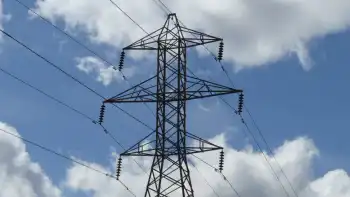Maximum controls to be used at Cliffside
The announcement from the Charlotte-based utility comes nearly two weeks after the state Department of Environment and Natural Resources said Duke must use such stringent standards to control mercury and other hazardous air pollutants.
Duke's decision is the latest development in the company's journey to build a new 800-megawatt unit at its Cliffside Steam Station, about 50 miles west of Charlotte. Duke has said the plant will be among the cleanest in the country, but environmental groups and other opponents argue the $2.4 billion project violates federal law.
Environmental groups, which have been fighting to halt the project for months, said Friday's announcement was a step in the right direction.
"I think it's certainly to Duke Energy's credit that they are not contesting it," said Molly Diggins, state director for the North Carolina Sierra Club. "However, under the Clean Air Act, we believe Duke Energy is required to stop construction."
Duke said it will file an assessment with the state by the end of June. Diggins said she is skeptical the company could complete an adequate analysis by the end of the month, arguing such a full analysis typically takes six months to a year to complete.
The Division of Air Quality approved the air quality permit for the generator in January, and Duke started construction on the facility began the next day.
In February, the U.S. Court of Appeals for the District of Columbia Circuit found the U.S. Environmental Protection Agency violated the Clean Air Act when it scrapped a policy that required utilities to install the best available technology to capture mercury.
Several environmental groups filed a lawsuit based on the decision, asking a federal judge to halt the project. They argued the ruling means the state permit was issued illegally.
When the new generator opens in 2012, Duke has said it will close four of its five older coal-fired units at Cliffside. The five plants now emit about 157 pounds of mercury a year. Mercury is a powerful neurotoxin that can damage the developing brains of fetuses and very young children.
Duke said it would also take additional steps to make the new Cliffside unit carbon-neutral by 2018, a step that is not required under state or federal law.
Related News

Shell says electricity to meet 60 percent of China's energy use by 2060
SINGAPORE - China may triple electricity generation to supply 60 percent of the country's total energy under Beijing's carbon-neutral goal by 2060, up from the current 23 per cent, according to Royal Dutch Shell.
Shell is one of the largest global investors in China's energy sector, with business covering gas production, petrochemicals and a retail fuel network. A leading supplier of liquefied natural gas, it has recently expanded into low-carbon business such as hydrogen power and electric vehicle charging.
In a rare assessment of the country's energy sector by an international oil major, Shell said China needed to take quick action this…





